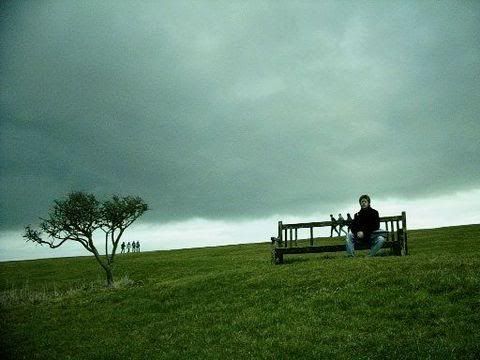The idea is so tired only because it is so true -- we are all so busy. Our lives are full to the brim, weighted down by responsibilities and with various entertainments crammed into every corner. The response to so many ideas, hopes and aspirations is the same: who has the time?
In such a world, reading prose makes sense. Reading prose is, for me, like a race (admittedly not the best technique for a student of literature). It is a race in which time is both the opponent and the prize -- I strive to win a few extra minutes for a few more pages.
What a contrast, then, is poetry! Reading poetry is like prayer (-- can a thing more unlike a race be imagined?). Our minds become accustomed to the modern world's breakneck pace and spin along like engine belts to keep up with the minutiae of life, yet when we come to God all that falls away. We look away from the mental clutter pressing from all sides, breathe, and give our eyes time to adjust to the big picture, that which is infinitely bigger and more beautiful than our humble distractions. To even consider one facet of the character of God is to momentarily leave it all behind, to slow down the frequency of our thoughts and broaden their wavelengths, bringing them into harmony with the Creator. It is good to pick up, say, God's beauty as manifested in his creation -- a tree, say -- to pick it up, turn it over and feel its weight.
As prayer, so poetry. Consider the first line of C.S. Lewis's poem "The Turn of the Tide:"
Breathless was the air over Bethlehem.
Such a line begs to not be rushed over on the way to the next. Poetry, like everything else, demands our time to be appreciated. However, it asks not for time only, but that as long as we engage with it and desire to harvest its fruit, we must
leave time behind.
Breathless was the air over Bethlehem.
See it, hear it, taste, smell, touch it. Move on.
Black and bare / Were the fields;
Is it another example of that great Mercy that this pleasure can be our training for a more fulfilling communion with Him?


